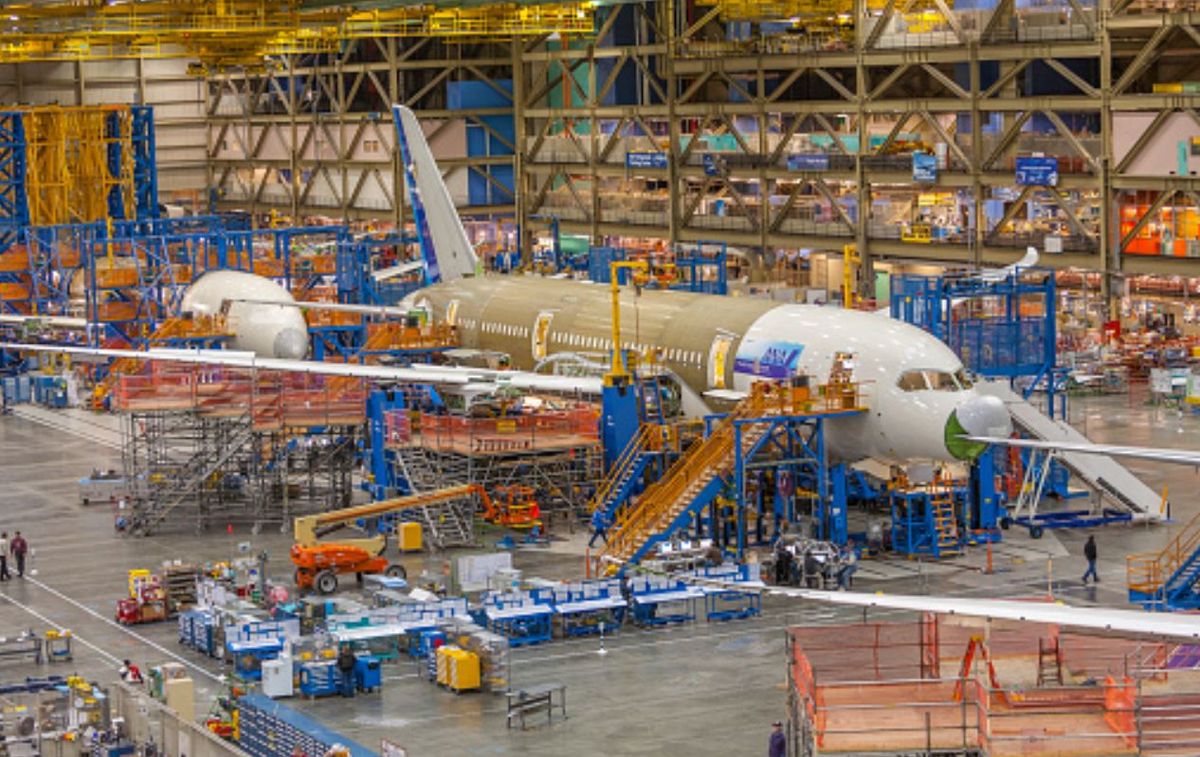Boeing posts $109 million Q3 loss amid jet production issues
Boeing said Wednesday it is building about two 787s a month and expects to stay at that low rate until deliveries resume. Problems including fuselage flaws are expected to cause $1 billion in "abnormal costs," the company said, including a $183 million charge recorded in the Q3.

By DAVID KOENIG | AP Airlines Writer
Boeing Co. lost $109 million in the third quarter as it struggled to fix problems with its 787 Dreamliner, a large airliner designed for long routes, and a space capsule that would ferry astronauts to the international space station.
Those setbacks overshadowed rising orders and deliveries as airlines and Boeing recover gingerly from the pandemic, which devastated air travel and demand for new planes.
On Wednesday, Chicago-based Boeing offered a hopeful outlook for aircraft sales, saying that the rollout of vaccines against COVID-19 and easing of global travel restrictions will help the company sell more planes.
More immediately, however, Boeing faces more uncertainty around major programs.
The company has large numbers of parked 787s and 737 Max jets. It hasn't delivered any 787s in several months because of a series of production flaws including substandard titanium parts.
CEO David Calhoun said he couldn't say when 787 deliveries will resume. “I can't give you certainty until I'm certain,” he told analysts during a conference call. “We're well past halfway.”
Calhoun said the company will correct problems on the 787 the same way that it brought back the Max after two deadly crashes and a worldwide grounding — by working with regulators to win approval for corrections to the plane. In the case of the Max, that process took 18 months.
As long as those deliveries are stopped, Boeing is losing a key source of cash.
Boeing has scaled back production of the 787, which caused the company to take a $183 million charge in the third quarter. It expects eventually to absorb $1 billion in “abnormal costs” on the plane.

Boeing also took a $185 million charge in the third quarter for its troubled Starliner space capsule. A unmanned test flight in 2019 failed to achieve the correct orbit, and a second flight was scrubbed in August because of problems with valves in the propulsion system. NASA and Boeing plan to try another launch next year.
Even though Boeing has resumed deliveries of the 737 Max — and won some large new orders for the plane — it is still trying to whittle down an inventory of 370 of them, which are parked at various places around the country.
China was Boeing’s biggest market for the Max before the crashes, and the company is still waiting for regulators there to let the plane fly again. If that approval doesn’t come in the next six to 12 months, the company will have to trim plans to boost Max production, Calhoun said.
Boeing is currently building 19 Max jets a month at a plant near Seattle, and aims to boost that to 31 a month early next year, a goal that Cowen aerospace analyst Cai von Rumohr called “ambitious.”
The $109 million loss attributable to shareholders — it was $132 including losses attributed to non-controlling interests — compared with a loss of $449 million in the same quarter last year, when the pandemic caused demand for new planes to collapse.
The most recent loss amounted to 19 cents per share, but the loss excluding special items was wider, at 60 cents per share. Wall Street expected an adjusted loss of 20 cents per share, according to a FactSet survey of 16 analysts.
Von Rumohr called it a deck-clearing quarter. While the core loss was wider than expected, cash outflow was not as bad as feared, he said in a note to clients.
Boeing's commercial airline business suffered an operating loss of $693 million even as revenue rose 24% to $4.46 billion. Boeing delivered 85 jets, mostly Maxes, to airlines and other customers in the quarter, up from 28 a year earlier.
The company's defense and space division earned $436 million and its services wing earned $644 million, providing a sense of stability during all the turmoil in the commercial-airplanes business.
Boeing's total revenue was $15.28 billion, far short of the $16.70 billion forecast by analysts. Two years earlier, before the pandemic, quarterly revenue was $19.98 billion.
The shares fell less than 1% in afternoon trading, to $208.79.

David Koenig can be reached at www.twitter.com/airlinewriter





